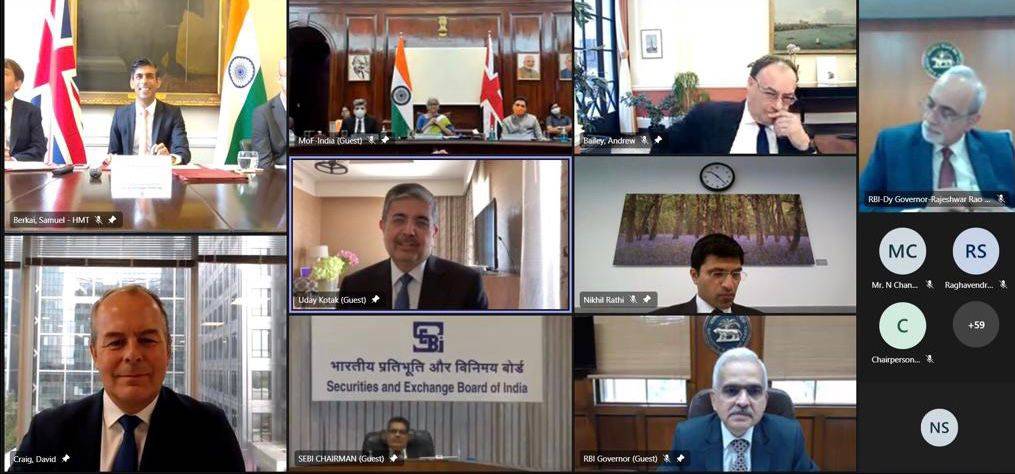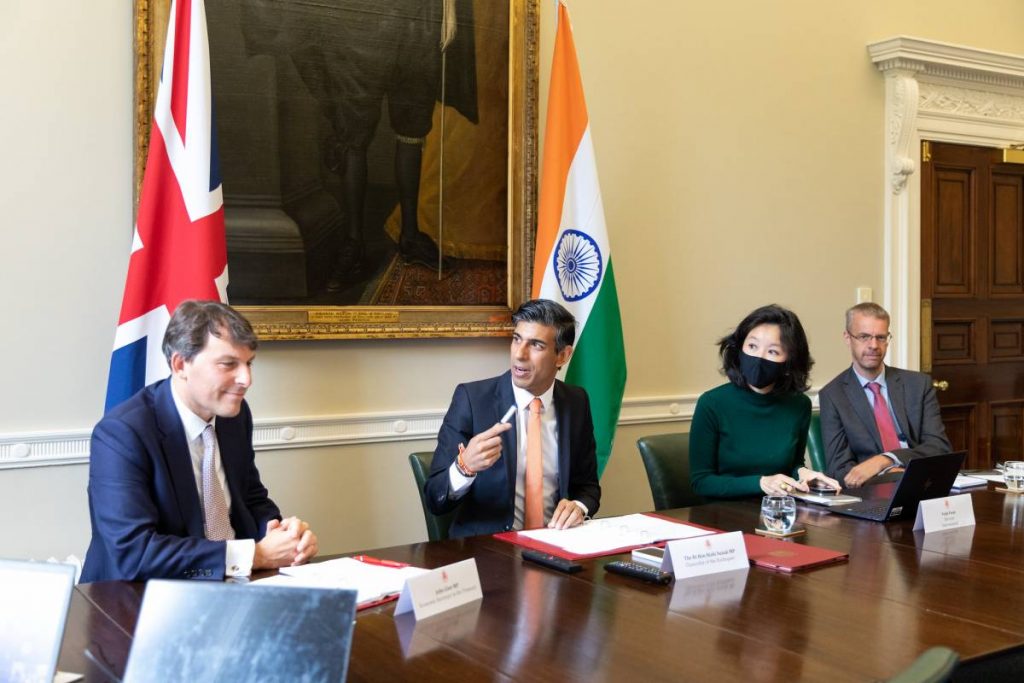This global partnership will boost private finance to support India’s ambitious commitment to deploy 450 GW of renewable energy by 2030, a report by VISHAL GULATI
With the UK announcing a $1.2 billion package of public and private investment in green projects and renewable energy in India to tackle climate change, climate advocates on Friday said the partnership is a trendsetter for countries that how the public and private sectors can work together to speed the clean energy transition.
This global partnership will boost private finance to support India’s ambitious commitment to deploy 450 GW of renewable energy by 2030.
Responding to the announcement by UK Chancellor Rishi Sunak and Finance Minister Nirmala Sitharaman on Thursday, Michael R. Bloomberg, UN Special Envoy on Climate Ambition and Solutions and Chair of Climate Finance Leadership Initiative (CFLI), said: “This partnership is a great example of how the public and private sectors can work together to speed the transition to clean energy and make possible the deep emissions cuts we need to reach the goals of the Paris Agreement and beyond.

“The Climate Finance Leadership Initiative is working to eliminate barriers to investment and create market conditions to drive more capital to green projects — and this collaboration between India and the UK, two of the world’s largest and most dynamic economies, can create a model for countries around the world to learn from.”
Climate Program WRI Director Ulka Kelkar said the massive scale of India’s low carbon transition will require upfront capital investments.
“Dedicated funding like this can be used to build new green energy, industry, and urban infrastructure and avoid lock-in to carbon-intensive projects. These new funding initiatives should also prioritise investments in decentralised rural energy and micro, small and medium enterprises (MSMEs), which have great potential to reduce emissions and support livelihoods but have lower capacity to access finance.”
Adequate financial support has always been a vital concern for climate action, and more so as India moves ahead in its quest for a clean future, said Akhilesh Magal, Head (Research Advisory), Gujarat Energy Research and Management Institute (GERMI).

“Today’s announcement adds confidence towards constructive negotiations at COP26. It remains to see how funds will come, from what sources, and where they will be used. Even so, this development should contribute towards the flow of low cost finance for clean energy goals,” he said.
India is taking bold steps to decarbonize its economy and has seen rapid growth in clean energy and other low carbon sectors in the last decade.
Indian wind and solar capacities have quintupled to reach 76GW in 2020, making it a global success story for renewables deployment. Despite this success, BloombergNEF estimates deployment must accelerate and an additional $649 billion in financing may be needed across the power sector for India to reach its 450GW renewable energy target — a financing gap the private sector can help to fill.
CFLI India presents a new approach to mobilising climate finance at scale to deploy emerging clean technologies, develop sustainable and resilient infrastructure, and help achieve India’s renewable energy target.
Climate Trends Director Aarti Khosla told IANS financing climate action has been a persistent issue.

“Coming ahead of the COP26, this India-UK partnership should bring in more private capital for sustainable infrastructure, including wind and solar. This will create a multiplier effect towards reducing emissions from key sectors like power and transport. This is good news ahead of the important meetings to be held over the next few months. It makes the commitments to finance real and not a symbolic gesture alone.”
Thursday’s announcement brings to life the key factors for creating enabling environments in emerging markets outlined in the CFLI’s latest report: Unlocking Private Climate Finance in Emerging Markets: Private Sector Considerations for Policymakers.
CFLI India is the first in a series of country pilots stemming from the CFLI’s work, with the goal of replicating this model in other countries in the years ahead.
Since early 2019, the CFLI, under Michael Bloomberg’s leadership, has worked to identify barriers and solutions to mobilising climate finance at scale, particularly in high-emitting countries, industries, and sectors.
This includes an ambitious agenda for public and private-sector engagement to strengthen investment conditions for private finance. The group, responsible for $6.2 trillion in assets, has published thought leadership and research on this topic, as well as partnered with groups like the Association of European Development Finance Institutions (EDFI) to build project pipelines, manage risks, and broaden opportunities for private sector financing and investment in emerging and frontier markets.
ALSO READ – UK scientists advise against jabs for healthy children

Leave a Reply